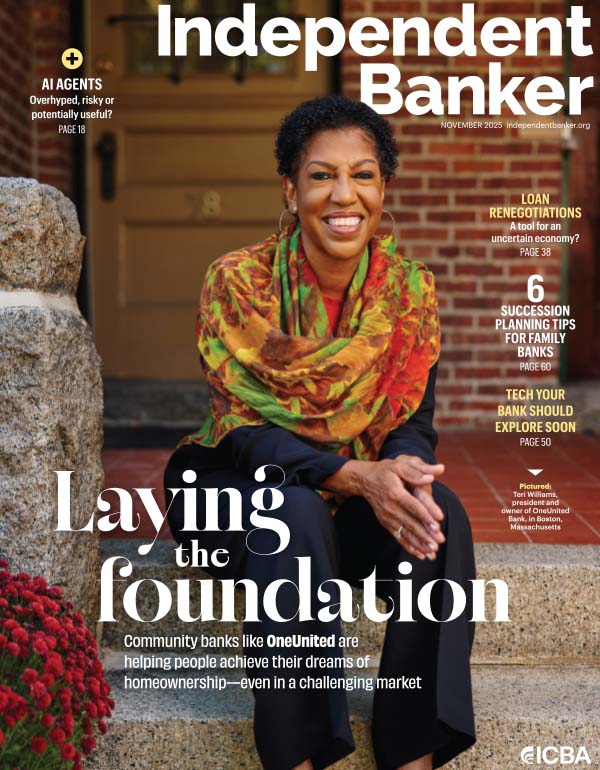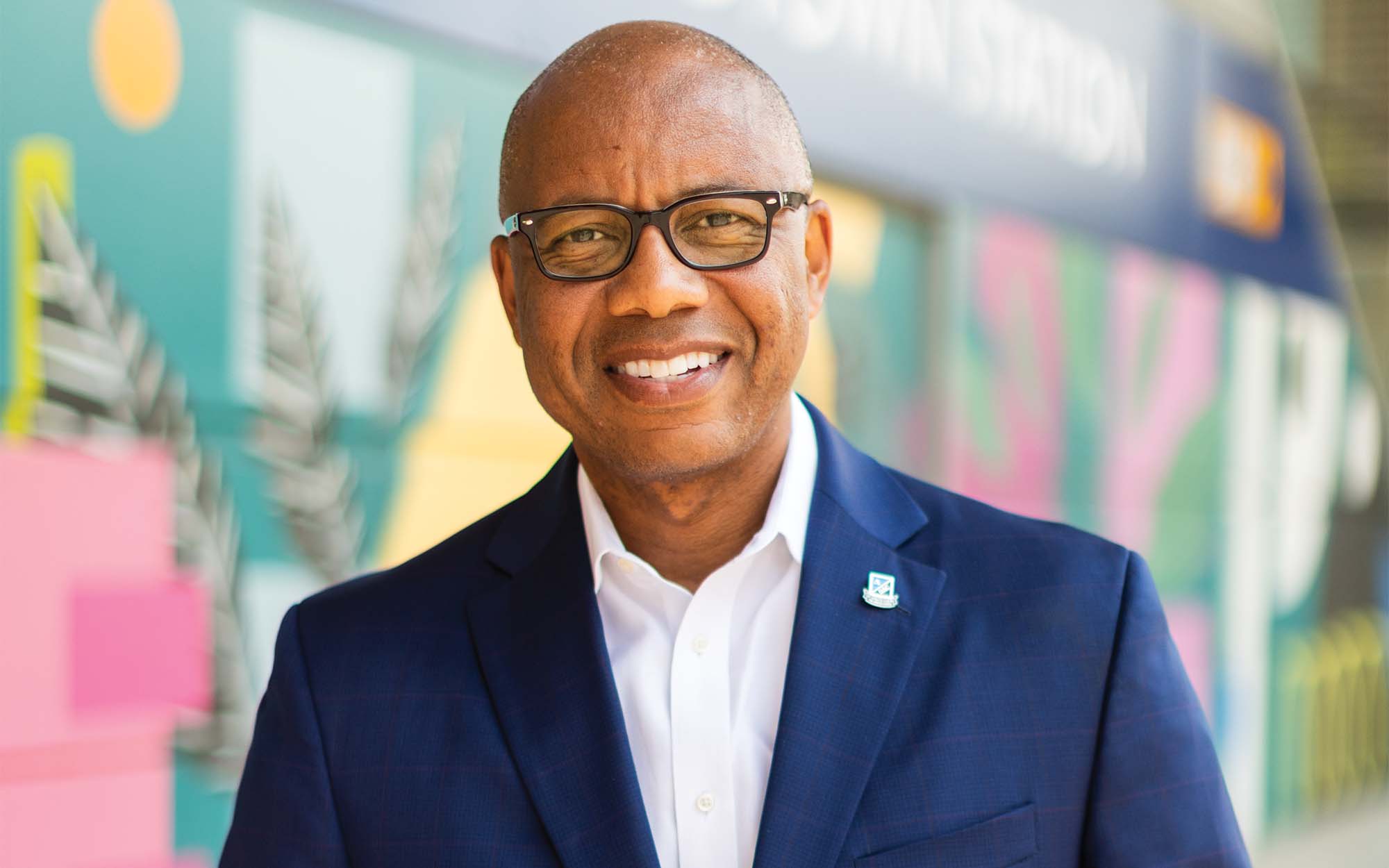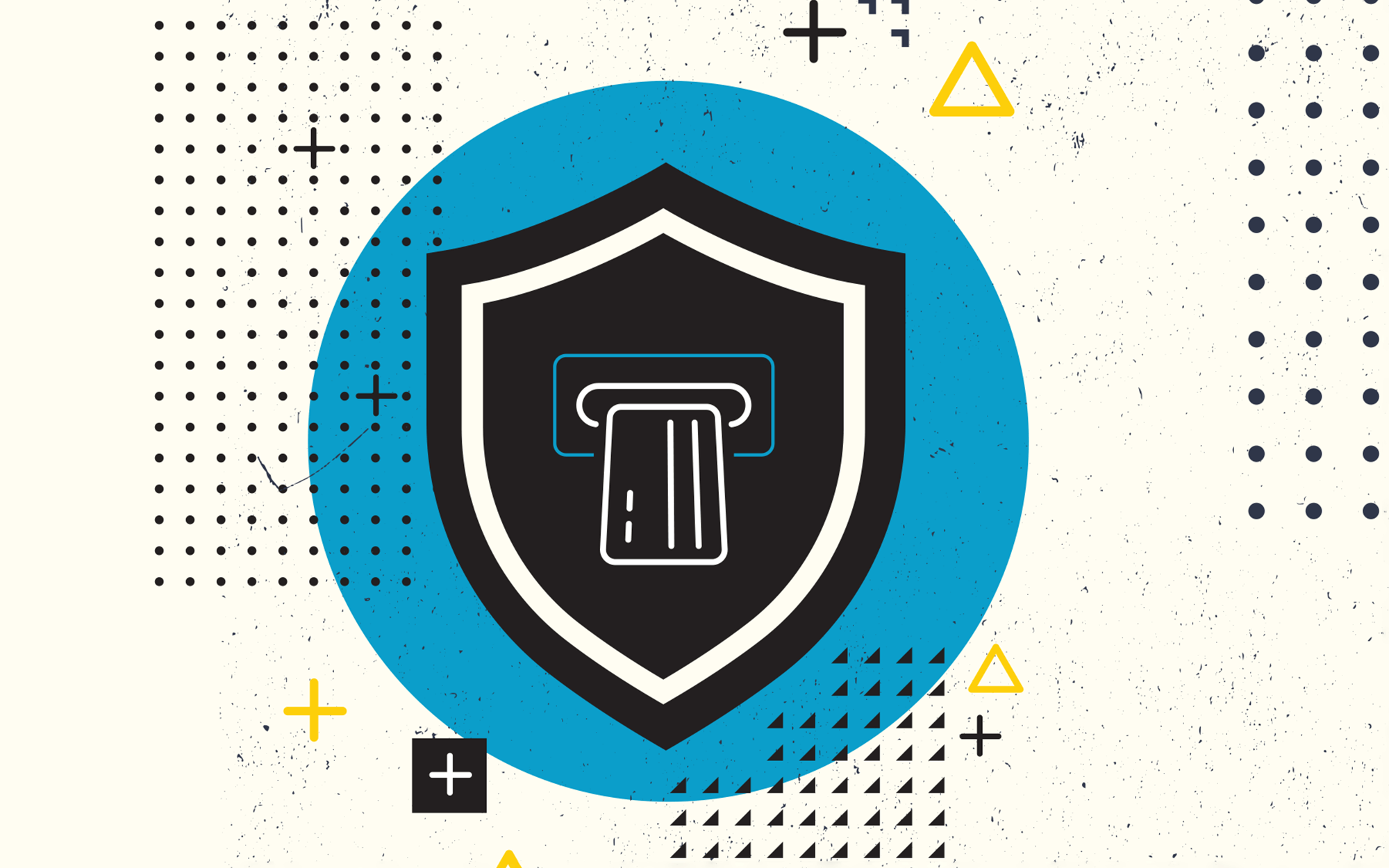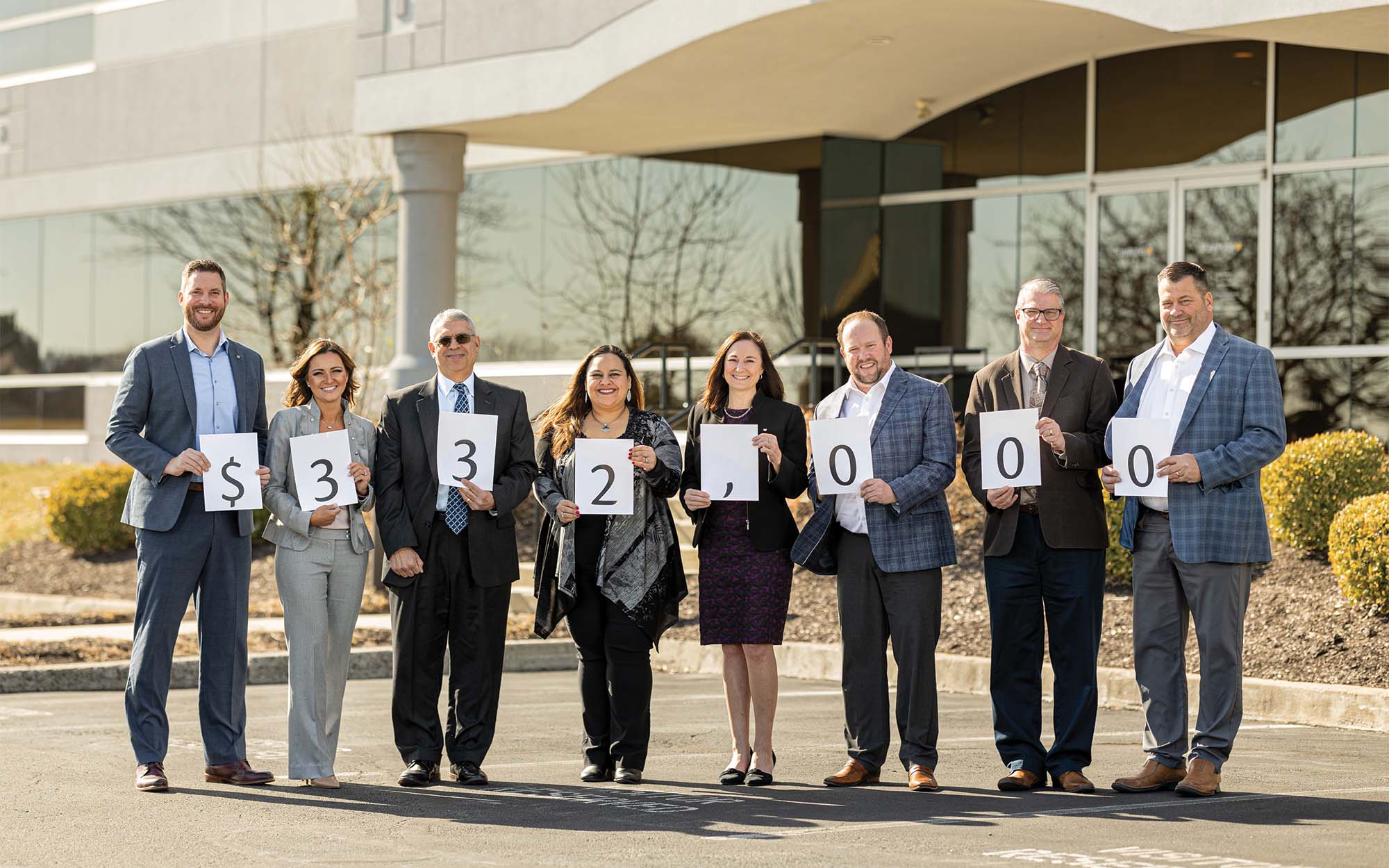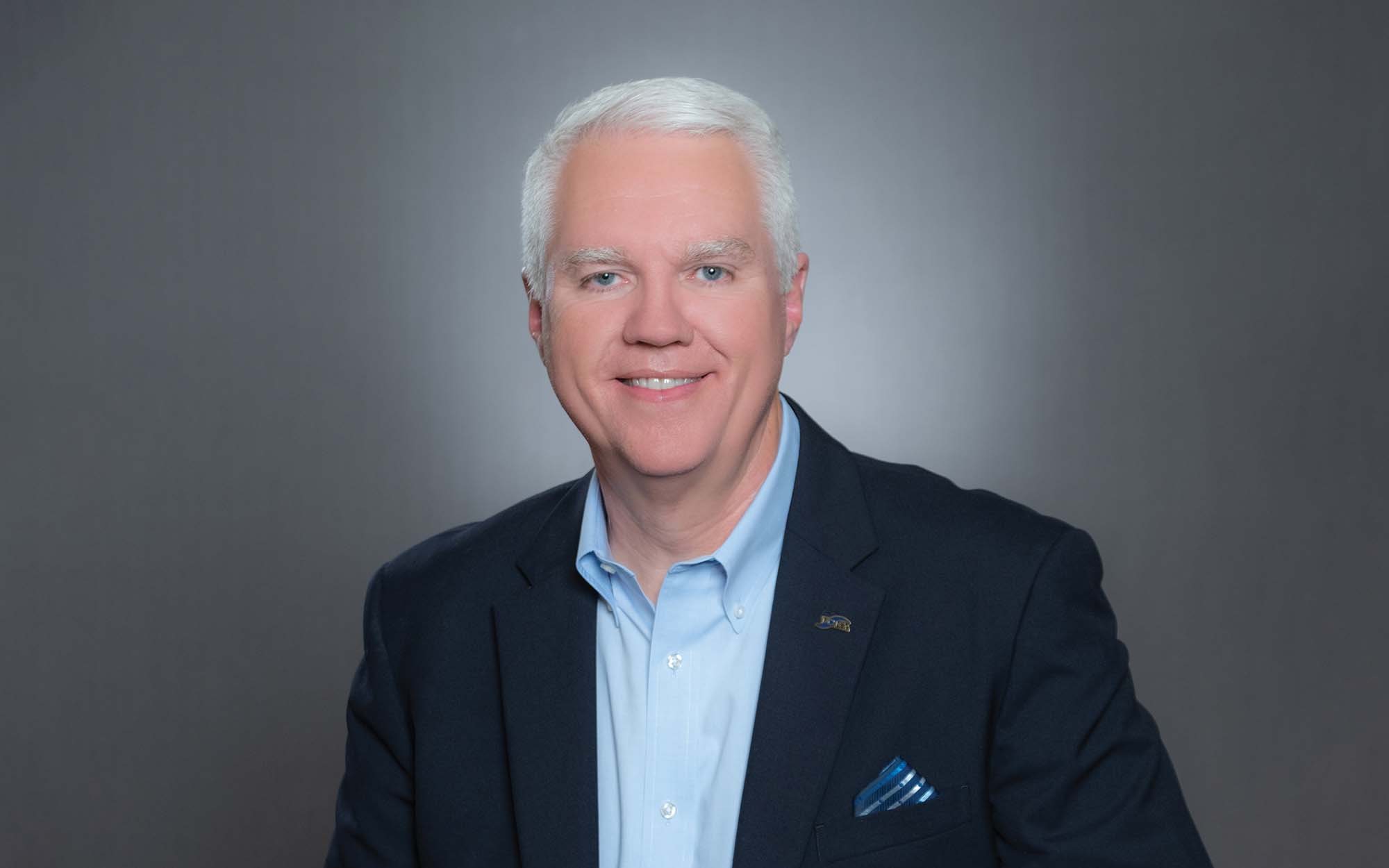Name:
First Independence Bank
Assets:
$500 million
Location:
Detroit, Mich.
In the summer of 1967, riots rocked Detroit. In a climate of increasing racial tension, a police raid at an after-hours bar led to protests, during which 43 people died and almost 1,400 buildings were burned. In the aftermath, Black leaders pushed for reforms that would address the lack of opportunity within their community.
In May 1970, because of their efforts, Black-owned First Independence Bank was born. Today, the $500 million-asset bank is the seventh largest Black-led financial institution in the United States.
Last year, First Independence Bank expanded into a new market, opening two branches in Minneapolis. They represent the first Black-owned banking presence in Minnesota and are located in areas easily accessible by public transportation—a strategic decision that ensures economically disadvantaged people can get to the branches.
The Minneapolis branches came about with the support of five banks that have a presence in the Twin Cities. Kenneth Kelly, chairman and CEO of First Independence Bank, says the coalition of bankers understood the importance of having a variety of options available for all customers in the market, especially the unbanked members of the community.
“We all know that home ownership is one of the easiest … building blocks for the wealth of a family. And so, if we can make a difference there, then we can make a significant difference in the lives of all who live in the Minneapolis-St. Paul area.”—Kenneth Kelly, First Independence Bank
These banks are lending their support in a number of ways, including capital, research and marketing. As part of the initiative, First Independence Bank customers have access to financial education and a loan program to help establish or repair their credit scores, plus fee-free ATM and debit card use at multiple banks.
Building generational wealth
A key goal of First Independence Bank is to increase home ownership for Black members of the community. According to 2021 U.S. Census Data, home ownership for white residents in the Twin Cities is 75.8% versus 28.5% for Black residents. “It’s one of the largest gaps in the country, and most people don’t know that,” Kelly says. “And so that was really a foundational business premise for us considering moving there.
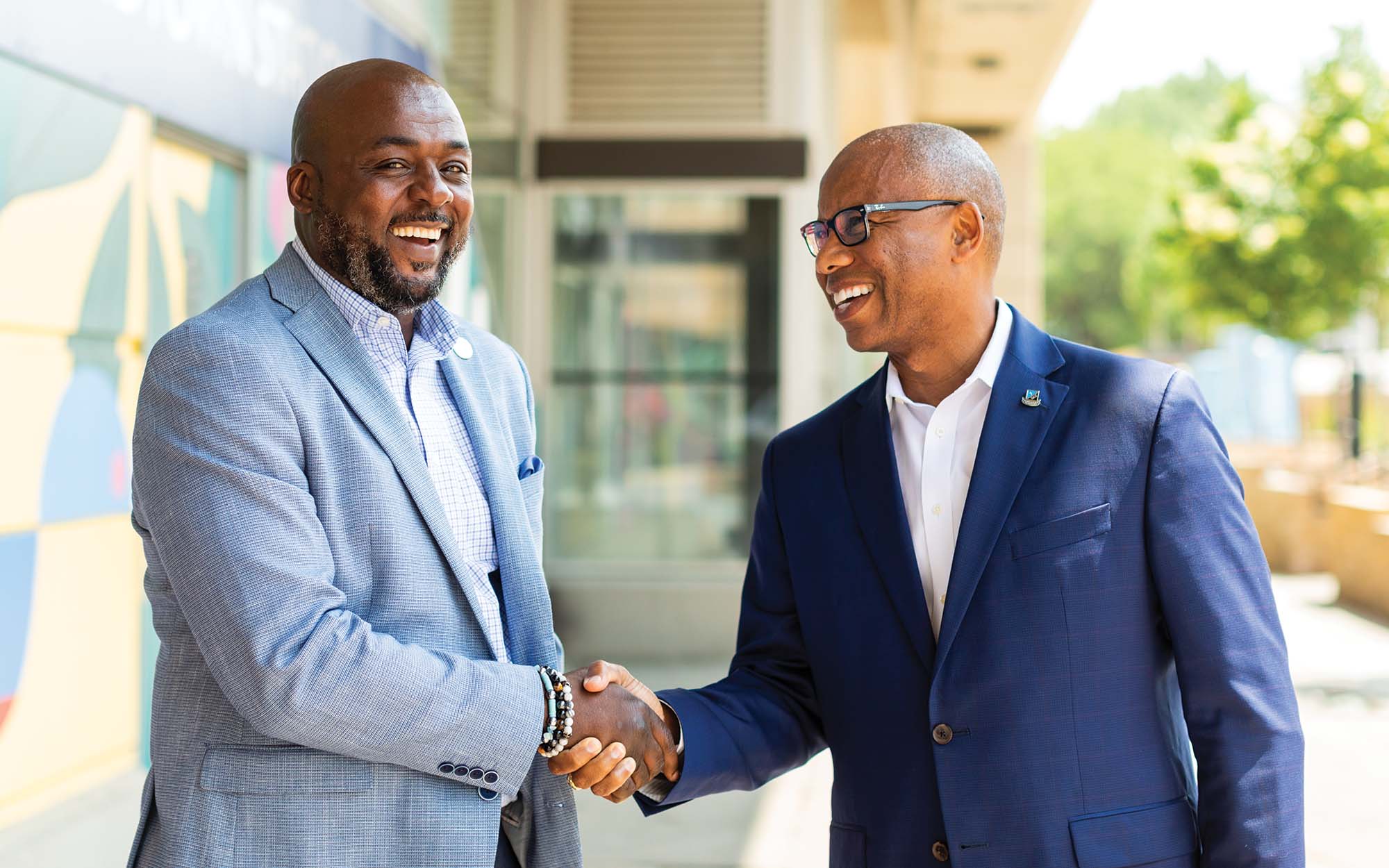
“We all know that home ownership is one of the easiest, and probably first, building blocks for the wealth of a family,” he adds. “And so, if we can make a difference there, then we can make a significant difference in the lives of all who live in the Minneapolis-St. Paul area.”
Kelly says the reception First Independence Bank has received has been “heartwarming.”
“We’re excited about the potential opportunities,” he says. “That’s the reason we moved there. … The lieutenant governor was there for the grand opening, along with the mayor of St. Paul and the mayor of Minneapolis, to be supportive of this effort. We’ve gotten support from the senators of the state. The governor wrote the supporting note on behalf of our opening there in the state, so there’s strong political will, and there was strong community support.”
Keeping it local
When First Independence Bank moved into the Twin Cities market, leadership made it clear that they wanted to hire members of the local community to work there. The response, again, was enthusiastic. “In Minneapolis, because of our movement there as an African American institution, we have seen more African Americans who have a desire to work with us,” Kelly says.
“We’ve got to be available and go out and get the work done to be attractive to customers on the lending side and on the borrowing side.”—Kenneth Kelly, First Independence Bank
For now, the task ahead of the bank, he says, is the “blocking and tackling of the day-to-day tasks, delivering superior customer service and being attractive to customers who have not banked with our institution in the past. The bottom line is, as an institution, we’ve got to be available and go out and get the work done to be attractive to customers on the lending side and on the borrowing side.”
In addition to consumer banking and loan services, First Independence Bank offers business services, including banking for both private sector businesses and public-sector entities, commercial real estate loans, secured lines of credit and SBA loans. With just 3% of all U.S. companies owned by African Americans, according to Pew Research, these are much‑needed resources.
A catalyst for change
Kelly strongly believes that the murder of George Floyd in Minneapolis in May 2020 must be a catalyst for change and that First Independence Bank should be part of that.
“Minneapolis was ground zero for equity and inclusion and inequalities,” he says. “We are hopeful we can be part of a solution, so that people can say something changed because of that day. And we are hopeful that our bank can be one of those beacons of hope, and maybe inspire others in another city, in our country or in other countries around the world to create equality.”
The bank coalition is still meeting once a month, a fact that Kelly is particularly proud of. And though he can’t reveal details, he suggests there is much more to come. “The fortitude of this leadership team is getting stronger over time, and [we are] looking at how we access resources beyond our own. And there is a coalition that is broader than just these five banks now working to make a significant difference in the Minneapolis and St. Paul area.”

